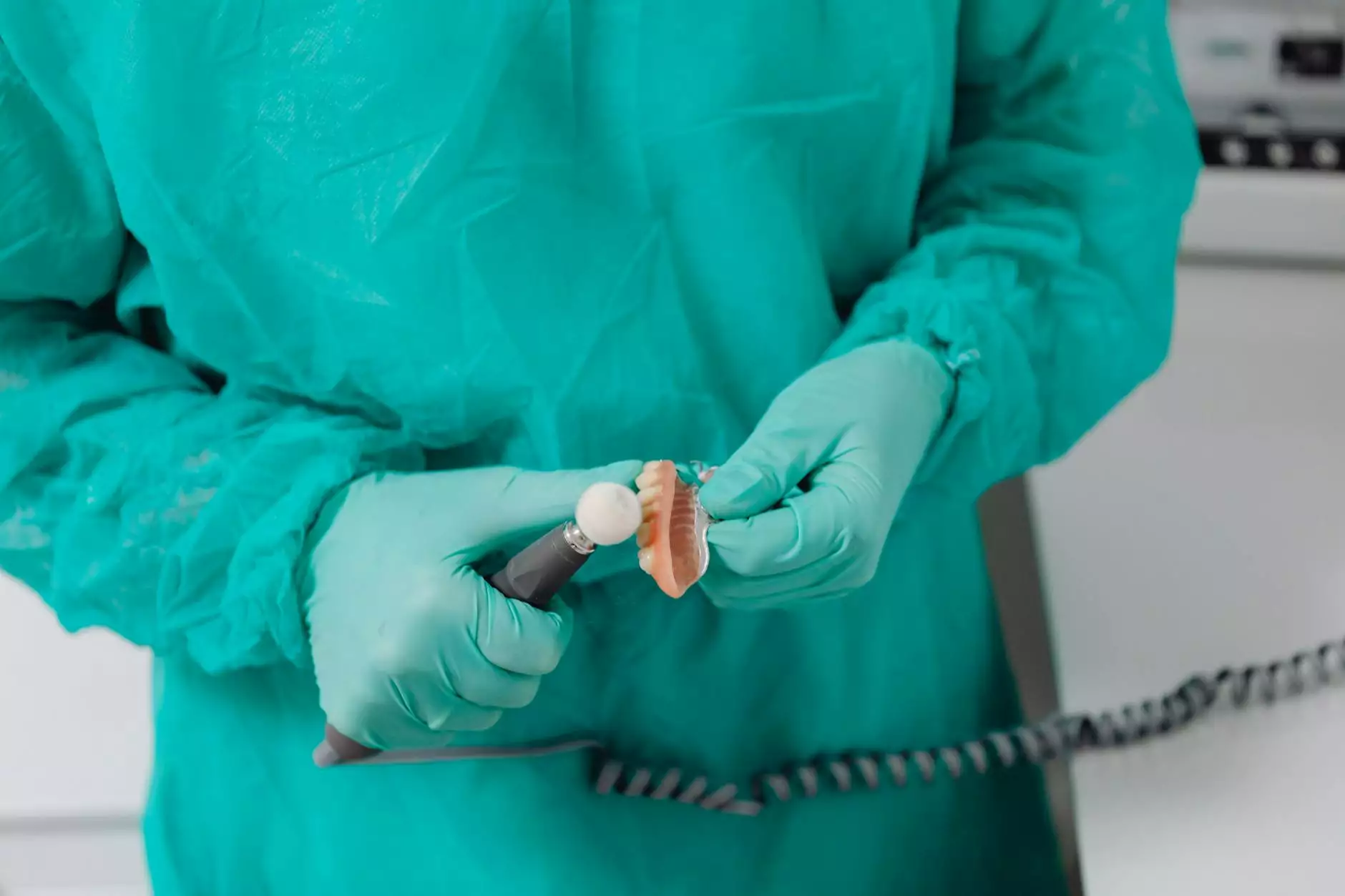Understanding the Role of a Lung Specialist in Health & Medical Care

In today’s fast-paced world, respiratory health has become a paramount concern for individuals of all ages. With an increasing number of lung-related ailments, the need for expert medical intervention is more vital than ever. This is where a lung specialist plays a crucial role. They are at the forefront of diagnosing, treating, and managing various respiratory conditions, ensuring that patients can lead healthier lives. In this comprehensive article, we will delve into the world of lung specialists, outlining their functions, significance in sports medicine, their impact on physical therapy, and much more.
The Importance of Lung Health
The lungs are essential organs that facilitate breathing, allowing oxygen to enter the body and carbon dioxide to be expelled. Poor lung health can significantly affect an individual's overall well-being and can lead to severe health issues. Here are some common factors that contribute to the decline of lung health:
- Smoking
- Air Pollution
- Allergens
- Infections
- Chronic Diseases
Addressing these factors early on is crucial, which is why the role of a lung specialist cannot be underestimated.
What Does a Lung Specialist Do?
A lung specialist, also known as a pulmonologist, is a medical doctor who specializes in diagnosing and treating lung-related conditions. Their comprehensive training equips them to handle a wide range of respiratory issues, including but not limited to:
- Asthma: A chronic condition that causes inflamed airways, leading to difficulty in breathing.
- Chronic Obstructive Pulmonary Disease (COPD): A progressive disease that obstructs airflow and causes breathing-related problems.
- Pneumonia: An infection that inflames the air sacs in one or both lungs.
- Lung Cancer: A severe type of cancer that requires specialized care for diagnosis and treatment.
- Interstitial Lung Disease: A group of disorders that cause scarring of lung tissue, leading to breathing difficulties.
How Lung Specialists Diagnose Conditions
The diagnostic methods employed by a lung specialist of unparalleled expertise are both advanced and comprehensive. Here’s a breakdown of some commonly used diagnostic tools:
- Chest X-rays: Used to visualize the lungs, helping identify infections, tumors, or other abnormalities.
- CT Scans: Provide more detailed images of the lungs, allowing for better diagnosis of lung diseases.
- Lung Function Tests: These tests measure how well the lungs are working, inputting values like lung capacity and air flow.
- Bronchoscopy: A procedure that allows the doctor to look inside the airways and lungs using a small camera.
- Sputum Tests: Analysis of mucus that is coughed up can help identify infections or other issues.
The Connection Between Lung Health and Sports Medicine
The intersection of lung specialists and sports medicine is particularly notable. Athletes require optimal lung function to perform at their peak. Conditions affecting lung health can severely impact athletic performance and recovery. Here are some ways in which lung specialists contribute to sports medicine:
- Assessing Respiratory Fitness: By conducting thorough evaluations, lung specialists can determine an athlete's respiratory capability.
- Managing Chronic Conditions: For athletes with asthma or other chronic lung conditions, specialists provide tailored management strategies to optimize performance.
- Guiding Rehabilitation: Post-injury rehabilitation includes respiratory fitness, with specialists guiding exercises to regain lung strength and endurance.
- Monitoring Environmental Impact: Lung specialists educate athletes on how air quality and climate can affect respiratory health.
Physical Therapy and Lung Health
The collaboration between lung specialists and physical therapists is essential for holistic patient care. Certain physical therapy techniques can significantly enhance lung function and overall respiratory health. Here are several key areas where their collaboration proves beneficial:
- Breathing Exercises: Specialized exercises can improve lung capacity and efficiency.
- Chest Physiotherapy: Techniques that help remove mucus from the lungs can be extremely beneficial for certain patients.
- Endurance Training: Tailored workout programs can increase physical endurance while considering respiratory limitations.
- Education on Posture: Proper posture can help alleviate pressure on the lungs, improving breathing mechanics.
Signs You Should See a Lung Specialist
Recognizing when to seek the help of a lung specialist is crucial for maintaining lung health. Some of the warning signs that warrant a consultation include:
- Persistent Cough: A cough that lasts more than three weeks could indicate an underlying issue.
- Shortness of Breath: Frequent or severe shortness of breath during regular activities may require evaluation.
- Chest Pain: Any unexplained chest pain, particularly when combined with difficulty breathing, should not be ignored.
- Unexplained Weight Loss: Significant weight loss without trying can signal serious health conditions, including lung diseases.
- Chronic Fatigue: Being constantly tired without justification could indicate a health issue that needs professional attention.
Preventive Measures for Lung Health
Prevention is always better than cure. Here are some proactive steps individuals can take to maintain healthy lungs:
- Avoid Smoking: This is the most significant factor in preventing lung diseases.
- Limit Exposure to Pollutants: Take measures to reduce exposure to air pollution, both indoors and outdoors.
- Regular Check-ups: Routine medical check-ups can help catch issues early.
- Stay Active: Regular physical exercise can greatly improve lung capacity and overall health.
- Maintain a Healthy Diet: Foods rich in antioxidants can help protect lung health.
Conclusion: The Vital Role of a Lung Specialist
In summary, the expertise of a lung specialist is indispensable in today’s health landscape. From athletes seeking to optimize performance to individuals battling chronic lung diseases, specialists offer critical care that can transform lives. It’s important to prioritize lung health, recognize the signs that necessitate a visit to a specialist, and embrace preventive measures to maintain optimal lung function.
As you continue your journey toward better health and wellness, consider the role of a lung specialist in your healthcare routine, and don’t hesitate to seek medical advice when needed. Taking charge of your respiratory health is a fundamental step toward achieving a better quality of life.









